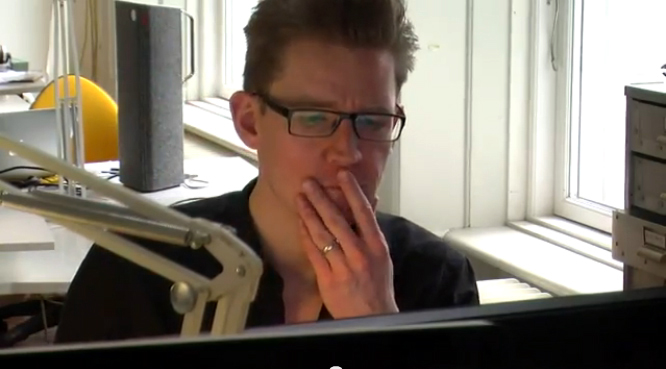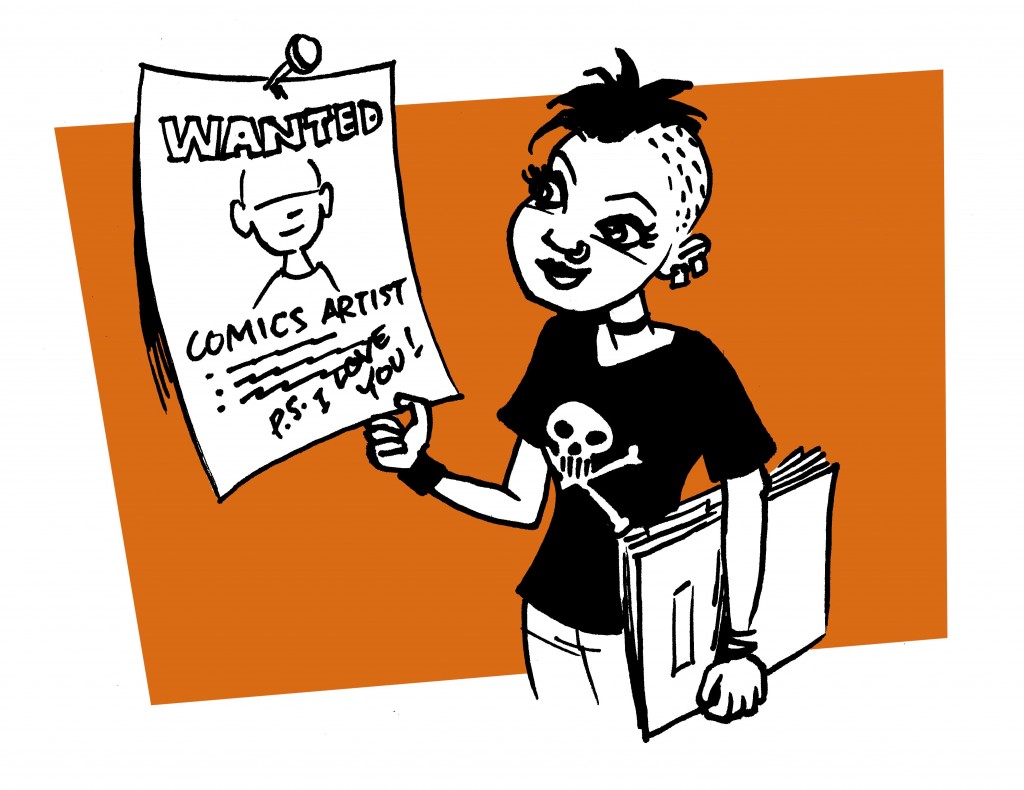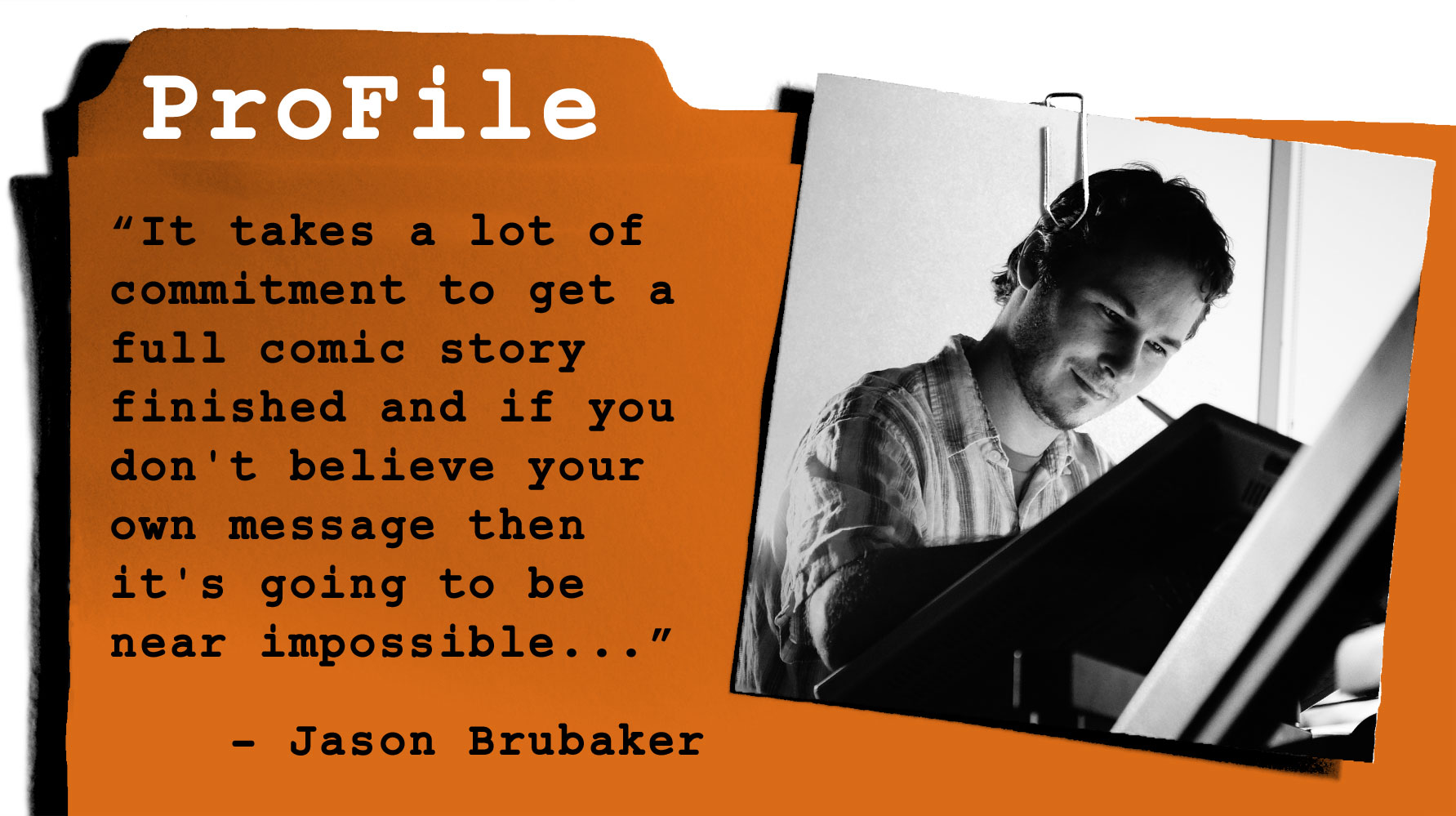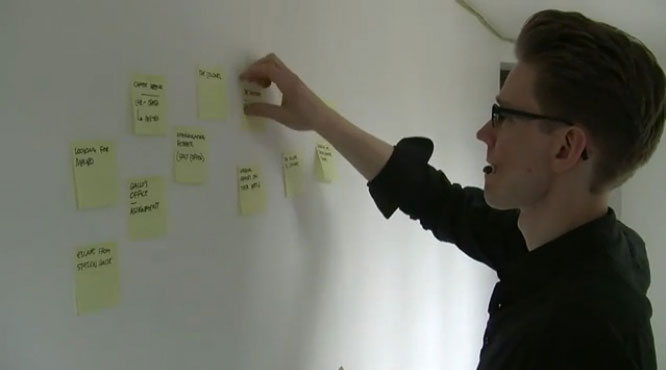Your worst enemy as a creative… is yourself!
If you think you’re alone in feeling like a hack, a fraud and a talentless poser, think again. We all have an annoying voice in our head, telling us we suck! What to do?
Watch this video, that’s a start.
How to Write & Draw Comics
Your worst enemy as a creative… is yourself!
If you think you’re alone in feeling like a hack, a fraud and a talentless poser, think again. We all have an annoying voice in our head, telling us we suck! What to do?
Watch this video, that’s a start.

It sounds to me like you’ve been looking for inspiration in the wrong places. Books on storytelling can be great to help you course-correct but rarely feed the creative fire to create something from scratch. You need to turn your looks to your inner self, what stories are bubbling in there that you want to tell? Or read lots of fiction to get inspired for your own stories.
I certainly can relate to jumping from one story to the other, I do it all the time (see this post on writing for scatterbrains: https://comicsforbeginners.com/writing-tips-scatterbrains/). The main difference I think is I have enough discipline and/or experience to either abandon a story with total conviction (after not spending too long on it) or clench my teeth and finish the damn thing at some point.
A friend of mine who’s a very succesful and wildly productive writer once told me: “He who has written is wiser than the one who has not.” Meaning you DO learn and evolve, even though you may end up scrapping the ten pages you just wrote. My friend also suggest keeping all the failed attempts and false starts on file because who knows? Maybe one day that bad idea can be used as a subplot for another story, a character you wrote can be brought back from the dead to play a part in something else, or you will simply get a new idea from skimming through an old one. I personally just found a document I had forgotten I wrote, which turned out to be a pretty decent outline for a crime story that never really found it’s form. Looking at it now it seems perfect to pitch to this new editor I just had a meeting with.
Not everything has to pay off here and now. You can plant seeds and maybe one day some of it will bear fruit. Be patient.
That said, you need to finish something to build your confidence as a storyteller. Every abandoned project that just didn’t work or you lost interest in will add another frustrating chip in your armour, make you feel like a loser. I harp on this a lot, the fact that quitting half way through a project breaks down our self-confidence as creators – and we NEED that self-confidence, it’s at the core of our creative existence. We need to nourish it and shelter in from the slings and arrows of outrageous fortune as Shakespeare put it, keep it safe from the nay-sayers and the sceptics, because they will stomp that thing into oblivion if you let them.
I recorded a podcast episode on quitting that might be helpful: https://comicsforbeginners.com/comics-for-beginners-podcast-episode-30-why-we-quit/
Again, there is the possibility you just don’t have a knack for writing. And that’s totally OK! You can work with a writer or a writing partner (which might also help keep you on track and accountable). I wrote a post on getting an artist on board. If you flip the narrative, you might find some good ideas here: https://comicsforbeginners.com/catch-artist/
Choosing which story to pursue is not easy. Decide early on to ditch the idea or stick the landing. If you find yourself returning to a story again and again in your mind, then it’s time to commit to develop it further. Set a deadline, get an accountability buddy who agrees to read your first draft.
My final piece of advice would be to spend a day or two writing up a synopsis or just notes on a story, then leave it be for a week or more. If you keep returning to the story and characters in your mind, that’s an indication there’s more to explore in that world. If you don’t dream or think about the story at all, doesn’t mean it’s not a good idea – it just means you are not meant to write it.
 This blog is focused on comics creation as a whole, rather than seeing writer and artist as two separate things. But what do you do if you have a great story written but don’t feel you have the drawing skills to pull it off?
This blog is focused on comics creation as a whole, rather than seeing writer and artist as two separate things. But what do you do if you have a great story written but don’t feel you have the drawing skills to pull it off?It’s a big commitment for an artist to draw a comic book that someone else wrote.
Getting an artist on board on your big project is not going to be easy, unless you have the cash to pay for their time. And even then, you’re competing with other commitments and paid work.
Being both a writer and an artist, I can see things from both sides. And I know there are more people out there who can write than there are people who can draw. Time is another important factor. You can write five 22-page issues of something in the same time it takes an artist to draw just one. So how do you lure someone into spending weeks and months hunched over the drawing table working on your book?
Here’s what I think will help:
Happy hunting!
PS: Even if you never plan to draw anything, it might be a good idea to at least have an idea of the process. So sign up for my 100% free 7-day crash course here.
If you thought I was lying on a beach somewhere, you are thoroughly mistaken! Here’s part of what I’ve been up to this past year or so. Probably the busiest time of my life ever – and still is. Watch the video to find out why.
 Jason Brubaker began his career in graphic novels in 2011 with the Xeric Award winning reMIND which also got on the Great Graphic Novels for Teens list 2012. In 2014 he quit his full-time job as a Visual Development artist at Dreamworks Animation to pursue publishing his own comics. You can support Jason’s work here: patreon.com/jasonbrubaker
Jason Brubaker began his career in graphic novels in 2011 with the Xeric Award winning reMIND which also got on the Great Graphic Novels for Teens list 2012. In 2014 he quit his full-time job as a Visual Development artist at Dreamworks Animation to pursue publishing his own comics. You can support Jason’s work here: patreon.com/jasonbrubakerWhat made you decide to work in the medium of comics?
What part of the process is the most challenging or frustrating to you?
If you could give one piece of advice to an aspiring comics creator, what would that be?

Writing a script for my comics was the lesson that took my process to the next level. And after I learned to write a script, the next most important lesson was to think of my script in terms of drafts. After all, if it’s a first draft, you don’t have to be Alan Moore right from the go!
Here are some pointers for getting that first draft done:
Now, as I say in episode 2 of the tutorial videos, it’s time to put your script in a drawer and forget about it!
Related video: Writing your script
If you have questions or issues please contact us.
Official mail: mail(at)comicsforbeginners.com